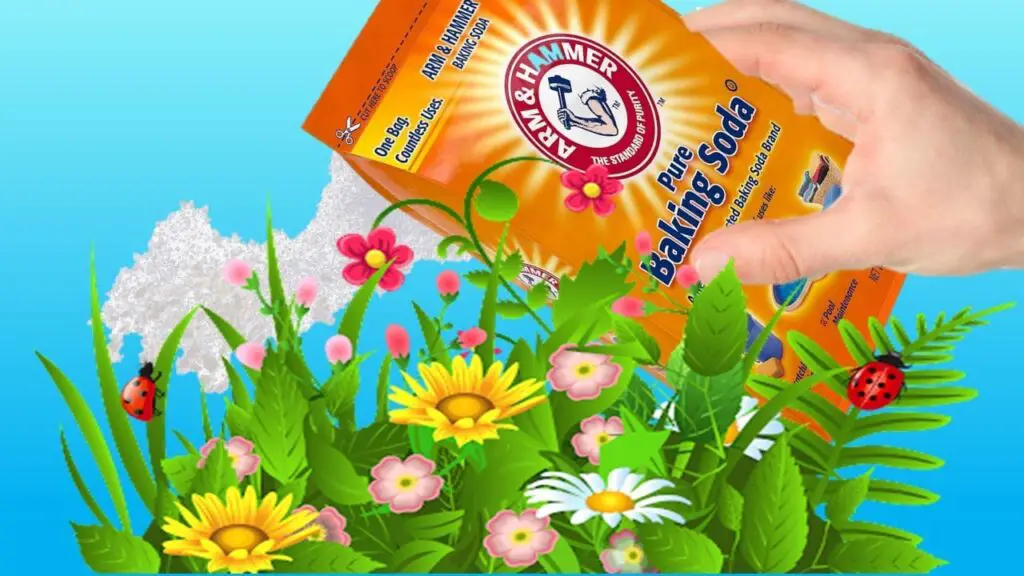We all know by now that baking soda is far more than just a cooking ingredient. We've been using baking soda for cleaning purposes around the home - but what about the garden?
Thanks to its natural, effective, chemical-free formula, baking soda is ideal for getting rid of pests and helping your garden reach its full potential.
Baking soda, otherwise known as sodium bicarbonate, is highly alkaline. It acts as a natural cleaning agent, and can be used to treat fungal diseases, care for plants, control pests and weeds, and more.
If you love spending time in your garden, but you don't like using chemicals in your outdoor space, then baking soda is one of the top products to have in your shed during the growing season.
Let's take a look at some of the biggest benefits of using baking soda in the garden:
1. Encourages Flower Blooming
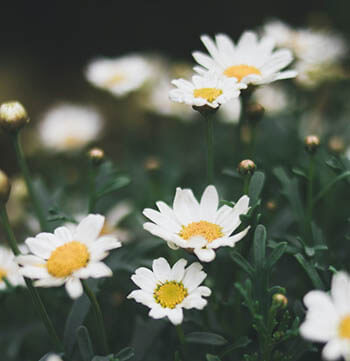
There are a number of flowers that grow better in alkaline soil, including geraniums, hydrangeas and begonias. Baking soda is alkaline, so watering these plants with a baking soda-water solution should help them to thrive. Mix two quarts water with a tablespoon of baking soda. Use this solution on a once-monthly basis for the best results.
2. Prevents Fungal Disease
Fungal disease is a gardener's nightmare, and it can be incredibly difficult to tackle. Baking soda isn't quite capable of killing existing fungus, but it will prevent fungus from growing in the future.
To use baking soda to prevent fungal disease, you'll need 1-quart warm water, a couple of drops of liquid dish soap, and 1 teaspoon of baking soda.
Combine the ingredients in a bowl, then pour into a spray bottle. Shake well, then spray this solution onto your plants in the morning, when the outside temperature is low. Be sure to spray the tops and bottoms of the leaves to offer full coverage to the plant.
3. Cleans Plant Leaves
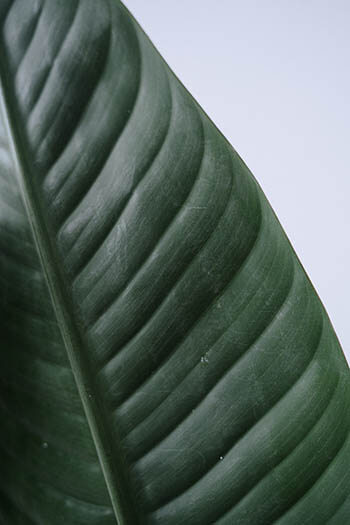
We all learned about photosynthesis in our school science lessons. Plants can't survive without photosynthesizing, and for that, they need the sun. To help plants benefit the most from the sunshine, you should make sure their leaves are clean.
Combine half a teaspoon of garden baking soda and a liter of filtered or distilled water. Then wipe the leaves of your plants with a cloth or sponge that has been dipped into the solution. Do this daily.
4. Prevents Tomato Disease
Growing your own tomatoes at home is a great way to save money and enjoy a healthier, tastier tomato crop in the summer. But if your tomato plants get fungal disease, you might end up with no tomatoes whatsoever.
To prevent fungal infections, combine 2 aspirin tablets with 2 gallons of water and 2 tablespoons of baking soda. Add this solution to a spray bottle and spray your plants every day.
5. Keeps Fresh Cut Flowers Longer
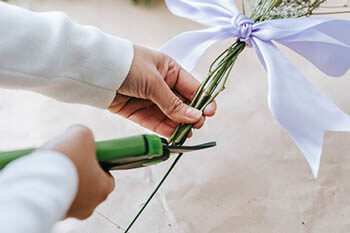
Fresh cut flowers make a wonderful addition to any kitchen or living room. But when the flowers wilt after a day in your home, is it even worth bringing them indoors?
You can increase the lifespan of your fresh cut flowers by treating them with a baking soda mix. Simply mix a tablespoon baking soda with two quarts of water, then add this solution to your vases. Change the solution every two days for the longest-lasting results.
6. Perks Up Plants
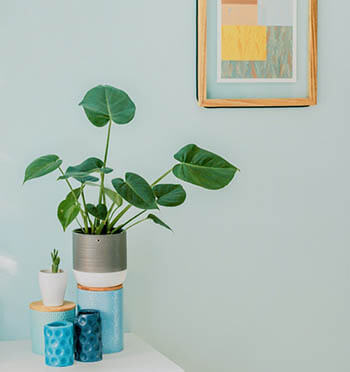
Listless-looking plants can be given a new lease of life with an easy baking soda treatment. Simply water your plants with this formula whenever they need a boost.
For this, you'll need 1 gallon of distilled or filtered water, 1 teaspoon of baking soda, half a teaspoon of ammonia and 1 teaspoon of Epsom salt. Add all the ingredients to a bucket or large container, then stir to dissolve the salt and baking soda. Add the solution to your watering can and use on a monthly basis. All plants can benefit from this treatment, roses especially.
7. Produces Sweeter Tomatoes
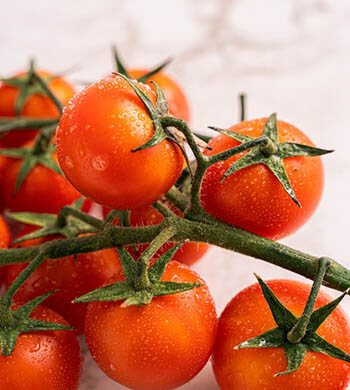
Growing the nicest-tasting tomatoes takes a bit of practice. To get the sweetest batch of tomatoes from your plant, add a sprinkle of baking soda and Epsom salt to the soil around it. Follow this up with water.
When the soil around your tomato plants is less acidic, this will mean that the tomatoes themselves are also less acidic.
8. Treats Fungus and Powdery Mildew
Fungus and powdery mildew are hardly attractive features of any plant. If it's too late to prevent a fungus problem, you can still treat it with baking soda. The solution will just need to be stronger than the everyday solution for preventing fungus.
To make a baking soda mildew spray, combine 1 gallon of water with 1 tablespoon of baking soda. Let the baking soda dissolve, then add 1 tablespoon of vegetable oil and 1 tablespoon of liquid dish soap. Shake in a spray bottle to combine, then spray onto your cucumbers, lilacs, and squash on overcast days. Avoid spraying during intense sunlight, as this could burn the plants.
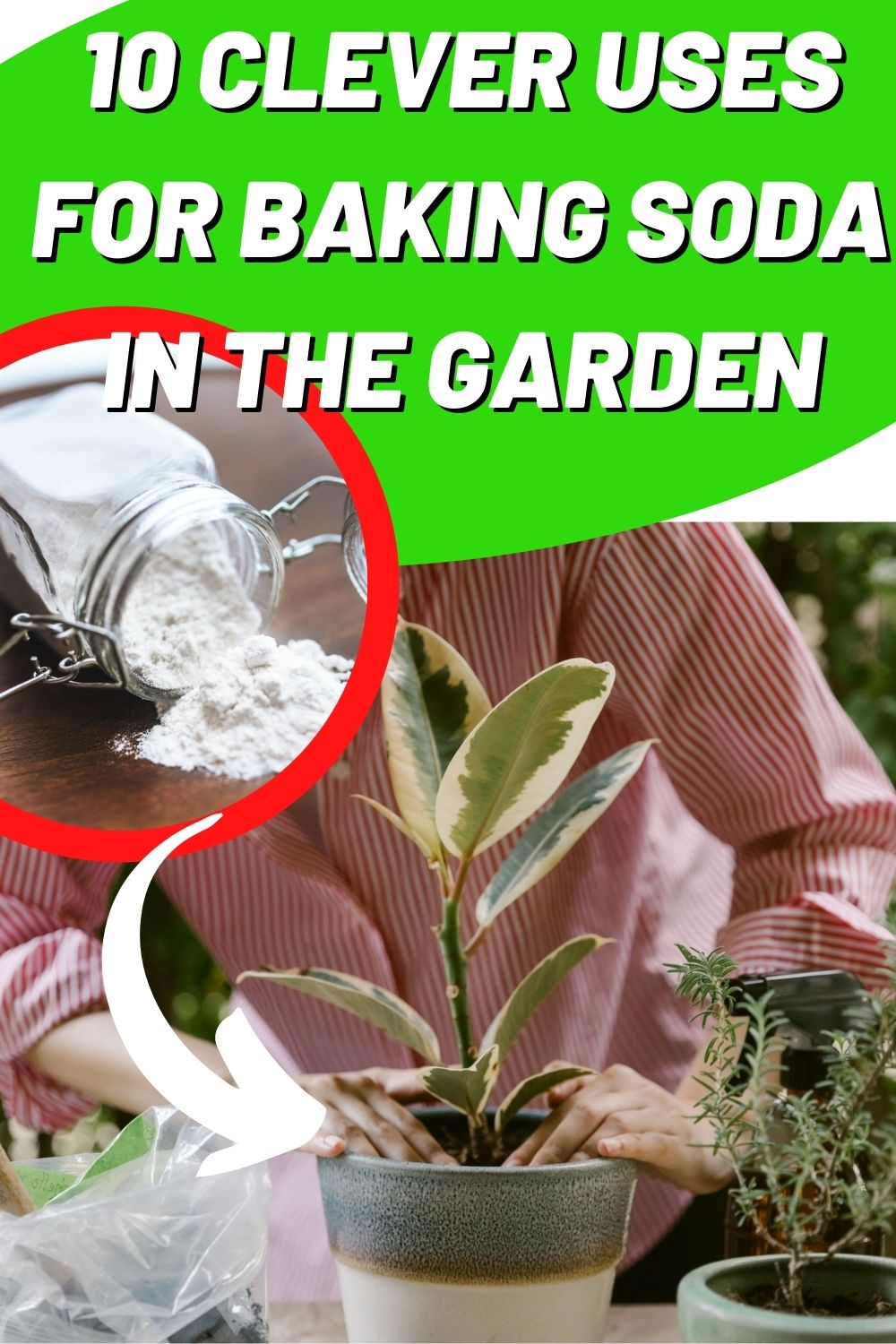
9. Tests Soil pH Level
Getting your soil pH is just right for growing your plants in optimal conditions. While some plants prefer acidic soils, others thrive in alkaline environments. Soil that's too acidic or alkaline can affect the plant's ability to absorb minerals through its roots.
It's quick and simple to test your soil's pH with baking soda. Just gather half a cup of vinegar, half a cup of water, and 1 tablespoon of baking soda. Collect two soil samples from your garden; one in each cup. Next, add the vinegar to one of the cups.
Bubbling soil indicates that the soil is alkaline. If the soil doesn't bubble, it's a sign that it's acidic. Add the tbsp baking soda to the water and pour this solution into the other soil sample to test its pH level. In this case, bubbling soil indicates acidity.
You can sprinkle baking soda over the soil before watering to reduce its acidity. You can then test your soil on a weekly basis using the process above until the soil doesn't bubble when you add the baking soda water mix.
10. Effective Weed Killer
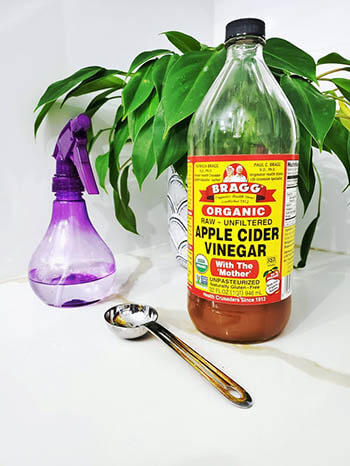
Baking soda is an effective natural alternative to harsh chemical products that can be used for killing weeds in your garden. One of the best uses for baking soda in the garden is as a weedkiller.
Simply wet the weeds in your garden with a hose or watering can to fully saturate them. Next, sprinkle 1 cup of baking soda onto your weeds, using a broom to sweep the powder into cracks and small, hard-to-reach spaces. Use baking soda to keep your weeds at bay once a week; no more. If you overuse this ingredient, it will become less effective.
If baking soda alone isn't cutting it, you can try combining baking soda with vinegar and dish soap and pouring this directly onto your weeds.
11. Organic Garden Maintenance Spray
You don't have to have a specific purpose for using baking soda. Perhaps you just want to keep your plants healthy, prevent pests from wreaking havoc on your garden, and reduce the risk of disease. In that case, one of the ways to use baking soda is simply as an organic garden maintenance spray.
Combine a gallon of water (warm is best) with a plant food or fertilizing solution, 2 tablespoons of baking soda and 1 tablespoon of liquid dish soap. Add 1 tablespoon of fish oil if you have any available. Once these ingredients are properly mixed, add them to a spray bottle.
Spray your plants with water first, as this will clear away any beneficial insects without killing them. You should use the baking soda solution once a month, preferably in the late evening to avoid sun damage after applying.
12. Get Rid Of Harmful Insect Infestations
There's nothing more upsetting than working hard on your garden, only to watch your plants succumb to an insect infestation. Luckily, there's plenty that baking soda can do to prevent this from happening. Another of the best uses for baking soda is as a chemical-free insect repellant.
To fight insect infestations in general, you'll need a gallon of warm water with 1-2 teaspoons of baking soda. Add 1 tablespoon of extra-virgin olive oil and 12 drops of liquid dish soap, then pour into a spray bottle and shake well. Spray the mixture every day onto your plants until the insects are no longer present.
To prevent reinfestation, repeat this process on a once-weekly basis.
There are more specific ways to use baking soda in the garden if you're dealing with a particular pest or insect problem. Solutions to some of the most common pest and insect problems are listed below:
Baking Soda Ant Killer
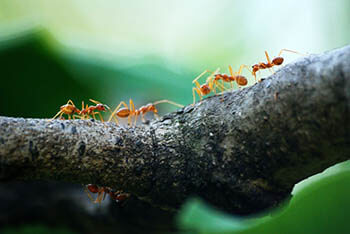
Combining powdered sugar and baking soda is the best natural remedy against ants. If you've ever had an ant infestation in your kitchen, you'll know that these pesky insects love sugar. Combine sodium bicarbonate with baking soda, then sprinkle over anthills.
Ants will be attracted to the sugar. They'll eat the mixture, then carry it back to their nests. This should hopefully kill off the entire population. Just make sure to use powdered sugar, not granulated sugar, to prevent the ants from being able to pick out the sugar without touching the baking soda.
Baking Soda Gnat Killer
Your garden will most likely have a dedicated leaf pile or compost pile. While compost can be beneficial, it can attract some unwanted residents, including gnats. Baking soda is an effective gnat-killing solution for your garden.
To get rid of gnats, combine a gallon of water with four tablespoons baking soda and a teaspoon of dish soap (preferably biodegradable). You can then spray the mix over your compost or leaf pile. This should kill the gnats in no time.
Baking Soda Pest Killer
Ground dwelling pests, such as roaches and slugs, are naturally drawn to lush, fertile gardens, making them an enemy to any gardener! To get rid of the silverfish, slugs and roaches that nibble on your plants, you'll need to use baking soda.
Simply sprinkle baking soda around your soil. Reapply the powder after every rain shower.
Baking Soda Slug Killer
Slugs are perhaps one of the worst garden pests of them all. There's nothing worse than checking up on your plants and discovering they've been overrun with the slimy creatures.
There are plenty of slug repellents out there, but most are chemical formulas. Baking soda is a natural, greener alternative that won't damage your plants themselves if used sensibly. Simply sprinkle a little baking soda directly onto the slugs, being careful to avoid your plants. This will kill the slugs, and they'll be easier to dispose of. You can also make a baking soda barrier around your plants to stop slugs in their tracks.
Baking Soda Cabbage Worm Killer
In case you've never been unfortunate enough to come across cabbage worms, these are tiny caterpillars that enjoy eating growing veggies like kale, cabbage and broccoli. They can be killed with a combination of baking soda and white flour.
Every three to four days, sprinkle this combination onto your plants. This should keep the area free from unwanted creatures.
Conclusion
Whether combined with water or sprinkled directly over plants or soil, baking soda has so many beneficial uses in the garden. The likes of fungal diseases, powdery mildew, cabbage worms and acidic soil are much less likely to affect your garden if you're using baking soda as a maintenance ingredient.
Remember to follow the instructions in this guide carefully when using baking soda in the garden. When used correctly, baking soda can one of the most effective garden tools to have. But it can also kill your plants if you use too much in one go.
Especially when you use it to kill weeds, make sure you don't get any baking soda on plants you want to keep. Baking soda can burn the leaves of plants, making it dangerous in large doses.

